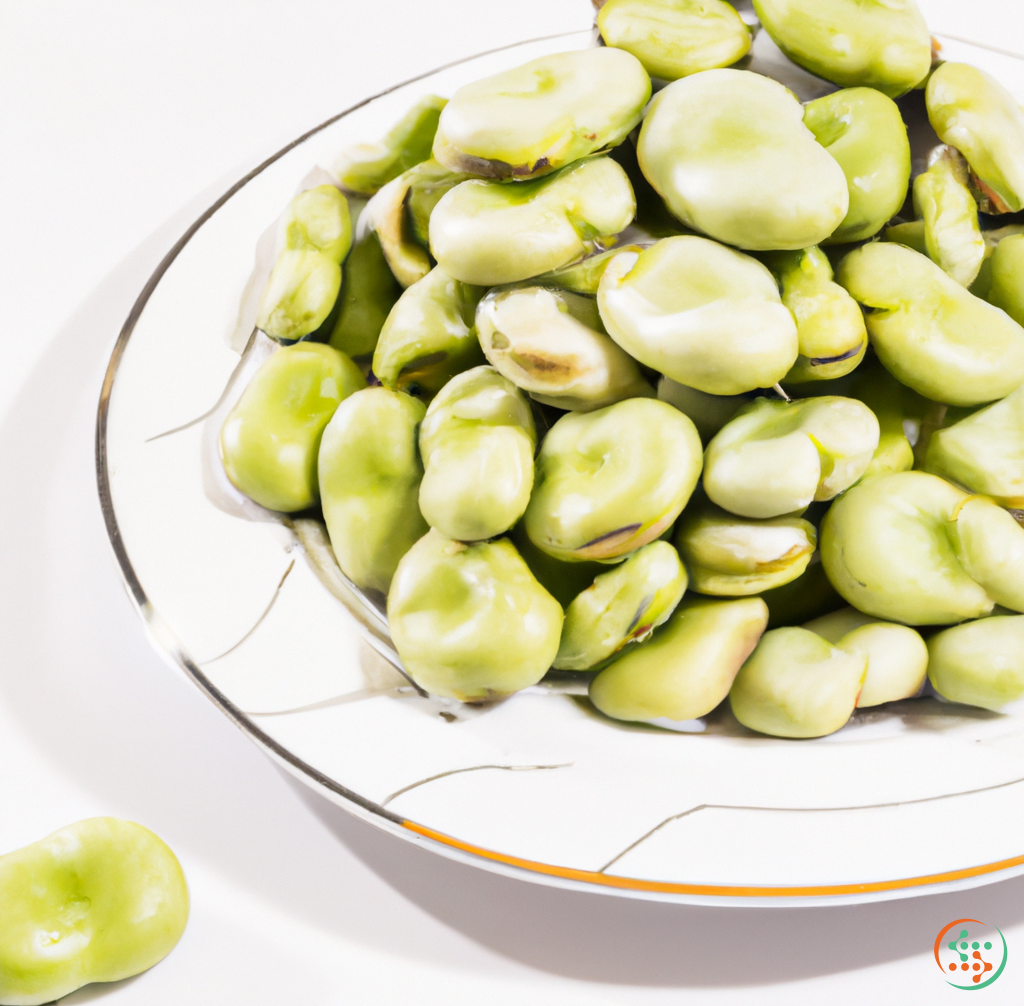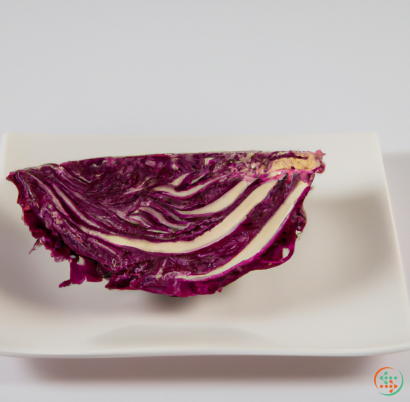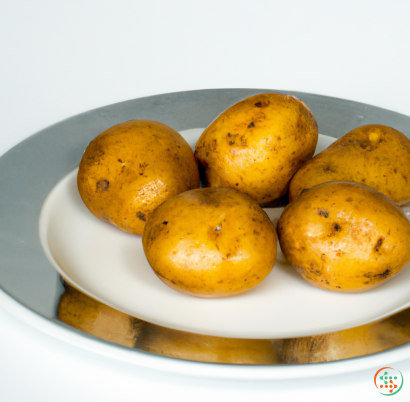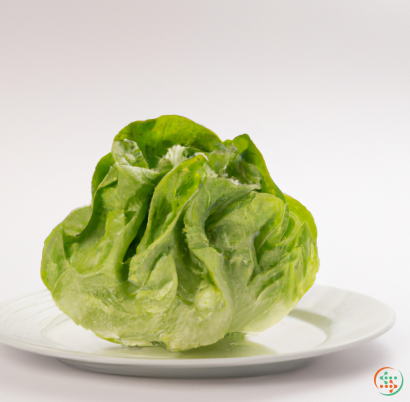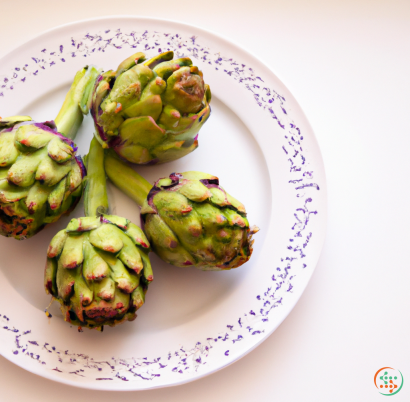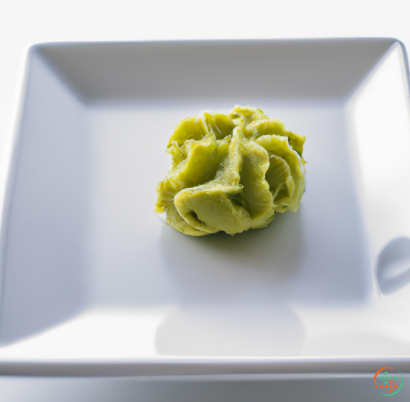Broad Beans (raw)
and how it affects your health
Broad beans, also known as fava beans, are a nutrient-rich legume that have been eaten for centuries. The bean is native to the Mediterranean region and is often featured in Middle Eastern and Mediterranean cuisines. Due to the beans' mild, starchy flavor and their high nutritional value, they are becoming increasingly popular in the Western world.
When consumed in its raw form, broad beans are full of vitamins and minerals, making them a healthful addition to any diet. Broad beans contain several beneficial plant compounds, including dietary fiber and antioxidants, which may reduce inflammation in the body. Additionally, raw broad beans are a good source of protein, making them a great vegetarian-friendly alternative to animal proteins.
A single serving of raw broad beans will give you 19 percent of the daily value of dietary fiber, 21 per cent of the daily value of copper, and 21 per cent of the daily value of vitamin K1. The beans are also an excellent source of iron, magnesium, zinc, phosphorus, and manganese.
Consuming raw broad beans can be beneficial for heart health. They are an excellent source of soluble fiber, which helps to reduce the levels of bad cholesterol (LDL) in the blood, while keeping good cholesterol (HDL) levels elevated. Studies have shown that individuals who consume higher levels of fiber from whole food sources have a decreased risk of heart disease. The fiber content in broad beans may also be beneficial in reducing blood pressure.
Broad beans are full of essential micronutrients that are important for healthy bones. The beans provide several essential minerals, particularly calcium and magnesium, which can help support the structure and strength of bones. Additionally, raw broad beans are rich in vitamin K1, which may help prevent bone loss.
Broad beans can be absorbed and digested more easily than other types of beans, making them an ideal and nourishing choice for people with digestive issues. The bean's high fiber content is beneficial to gut health as well; fiber helps to support the good bacteria in the digestive system and may help to reduce bloating and other symptoms of irritable bowel syndrome.
Finally, broad beans may be beneficial for brain health. The beans contain compounds known as polyphenols that directly interact with neurons in the brain. These polyphenols may help protect the brain from damage caused by oxidative stress and help improve learning and memory.
Raw broad beans can be incorporated into salads, soups, and stews, or lightly stir fried. They can also be pureed into a paste and made into a dip or spread. To get the most nutritional benefit, avoid overly-cooking the beans and only steam or lightly blanch them.
In conclusion, broad beans provide numerous health benefits. Not only are they a great source of dietary fiber and nutrients, but they may also support heart and brain health, as well as aid digestion. Enjoying broad beans in their raw form is a great way to reap the full nutritional benefits they have to offer.
Broad beans are an edible legume, also known as fava beans, originating in the Near East, and now popular all over the world. For centuries, they have been a staple crop due to their strong nutritional profile and tasty flavor, and it’s no wonder why they’re enjoyed in many countries. From preparation in the field and the journey through the supply chain, there’s a lot to learn about how a raw broad bean gets from farm to plate.
The Growing of Broad Beans
Broad beans, which are a type of Vicia faba, are annual plants that require a cool climate and moist soil, typically having a long growing season, needing around 90 days to mature. Soil should be slightly acidic, and temperatures should generally not rise over 75 degrees Fahrenheit or fall below 40 degrees Fahrenheit, making them an ideal crop for Middle Eastern, Central European, and other temperate climates.
As with any farming, preparation of the ground is the first step. Broad bean farmers typically plow the land, and then apply fertilizer to increase the nitrogen levels of the soil. Planting usually takes place in early spring – either directly sowing the seeds in the ground or in more sheltered locations, such as greenhouses, acclimated the broad beans to their environment.
Generally, a growth period of 45-90 days will follow, during which the farmers should water the parcel of land and help the crop become established. After this point in the growth of the broad beans other operations may be necessary, such as weeding. The ultimate goal is to have a parity of one or two active growing pods per plant, with each pod having between three and five beans.
Once the broad beans reach peak maturity, they are harvested. Depending on the type of variety, harvesting will either involve picking the beans directly from the plant or de-podling, meaning taking the beans separately from the pod itself. Mechanical pickers can also be used, particularly with larger farm operations.
Post-Harvest Storage
Broad bean storage conditions vary, depending on the intended use for the crop. For human consumption, temperatures must remain below 50 degrees Fahrenheit, with relative humidity (RH) of between 85 and 95%, and no post-harvest treatments, such as bleaching, washing, or soaking, should also be conducted. For food processing, beans can be stored at temperatures as low as 32 degrees Fahrenheit, with less stringent RH requirements.
Once the broad beans have been harvested and stored, they navigate the supply chain. Farmers are the first stop, with local selling points for fresh produce common, such as farmer’s markets and farm shops. Alternatively, processors can purchase the broad beans directly, having a variety of options based on their needs. Factory-farmed goods are a possibility, making it an option for large retailers, but organic goods are also available.
These processing facilities can sometimes conduct a number of treatments, such as de-slugging and re-hydrating, as well as blanching and defrosting frozen beans. These further enhance the shelf-life of the broad beans, prolonging their usable life for human consumption.
Any processed goods are then shipped off via a variety of methods, varying from air and road transportation through to boat cargos, depending on the required delivery time. Goods will be carefully handled and kept to their temperature requirements, or depending on their environmental hardiness, packaged securely in boxes or shrink wrap.
Reaching the Plate
Finally, the broad beans reach the retailer or end user, ready for dinner. In the case of fresh beans, they will have a shelf life of around five days depending on temperature, whereas frozen goods can last up to a year. In either case, the beans will have clear labeling, indicating the nature of the goods and also shelf-life or best-before dates.
When selecting broad beans, organic options should be chosen in order to avoid pesticide use and support sustainable farming practices. On purchase, care should be taken with regards to cooking instructions, as some varieties of beans need to be treated with bicarbonate of soda when boiling.
For dinner recipes, the possibilities are endless. Broad beans are often a central ingredient for tasty dishes, such as pasta e fagioli, falafel balls, or sweet and savory pies. Mash them up with butter, top them with feta cheese and lemon, lightly fry in a wok, or even add them to salads for a crunchy and nutritious addition.
There are plenty of creative ways to include broad beans in a meal, providing a wealth of both taste and health benefits. From the planting of the seeds to the dinner plate, it’s clear to see why they’ve been beloved all over the world for centuries.
| Vitamin A | 0.018 mg | |
| Vitamin C | 0.033 grams | |
| Vitamin B1 | 0.17 mg | |
| Vitamin B2 | 0.11 mg | |
| Vitamin B3 | 0.0015 grams | |
| Vitamin B5 | 0.09 mg | |
| Vitamin B6 | 0.04 mg | |
| Vitamin B9 | 0.096 mg |
| Calcium | 0.022 grams |
Daily Value 1.3 g
|
| Iron | 0.0019 grams |
Daily Value 0.018 g
|
| Magnesium | 0.038 grams |
Daily Value 0.4 g
|
| Phosphorus | 0.095 grams |
Daily Value 1.25 g
|
| Potassium | 0.25 grams |
Daily Value 4.7 g
|
| Sodium | 0.05 grams |
Daily Value 2.3 g
|
| Zinc | 0.58 mg |
Daily Value 0.011 g
|
| Copper | 0.07 mg |
Daily Value 0.9 mg
|
| Manganese | 0.32 mg |
Daily Value 0.0023 g
|
| Selenium | 0.0012 mg |
Daily Value 0.055 mg
|
| Tryptophan | 0.056 grams | |
| Threonine | 0.208 grams | |
| Isoleucine | 0.251 grams | |
| Leucine | 0.432 grams | |
| Lysine | 0.366 grams | |
| Methionine | 0.043 grams | |
| Cystine | 0.077 grams | |
| Phenylalanine | 0.228 grams | |
| Tyrosine | 0.196 grams | |
| Valine | 0.274 grams | |
| Arginine | 0.463 grams | |
| Histidine | 0.134 grams | |
| Alanine | 0.228 grams | |
| Aspartic Acid | 0.631 grams | |
| Glutamic Acid | 0.855 grams | |
| Glycine | 0.23 grams | |
| Proline | 0.252 grams | |
| Serine | 0.246 grams |
| Total Sugars | 0.131141 grams |
per 100g
|
| Palmitic acid (16:0) | 0.12 grams |
|
| Stearic acid (18:0) | 0.02 grams |
|
| Total Saturated fatty acids: | 0.14 g | |
| Oleic acid (18:1) | 0.02 grams |
|
| Total Monounsaturated fatty acids: | 0.02 g | |
| Linolenic acid (18:3) | 0.19 grams |
|
| Linoleic acid (18:2) | 0.12 grams |
|
| Total Polyunsaturated fatty acids: | 0.31 g | |
